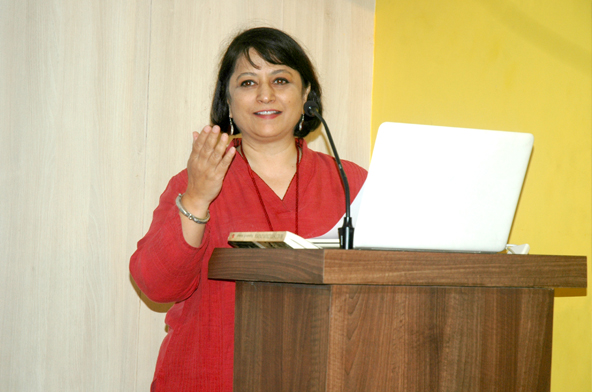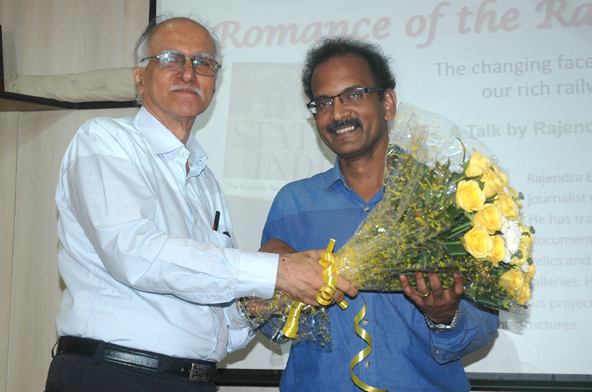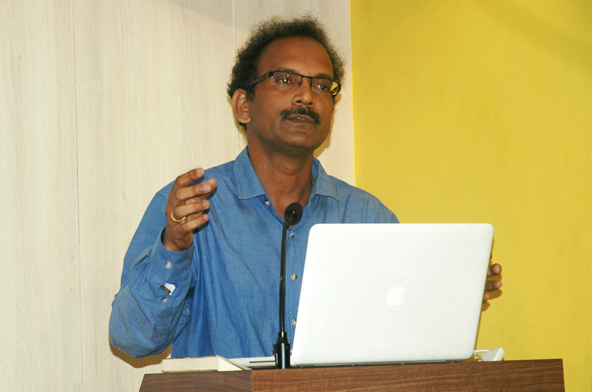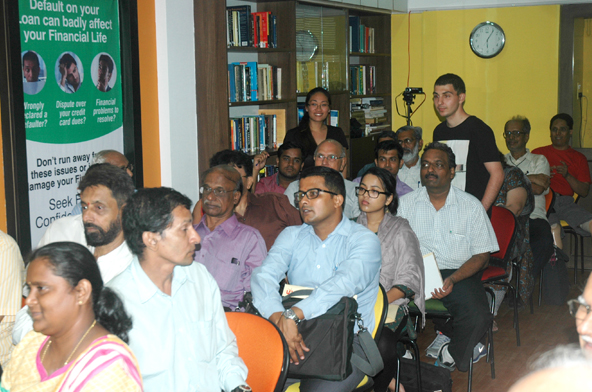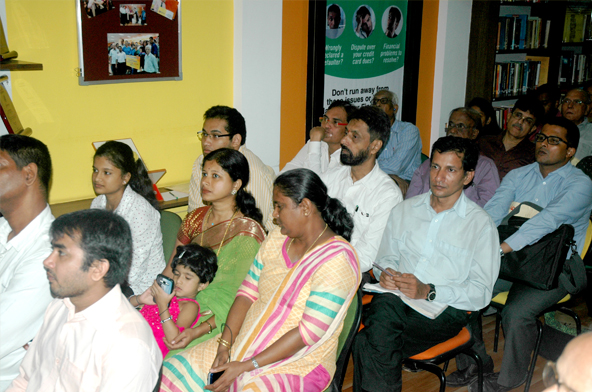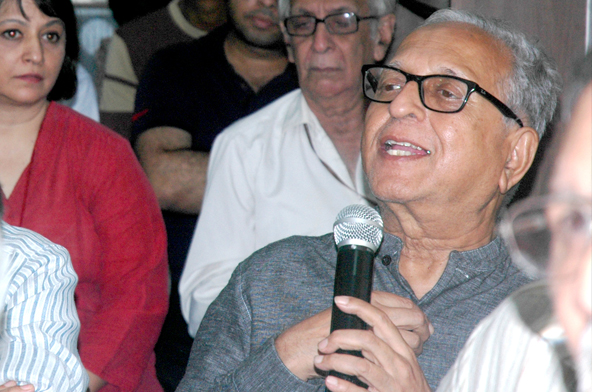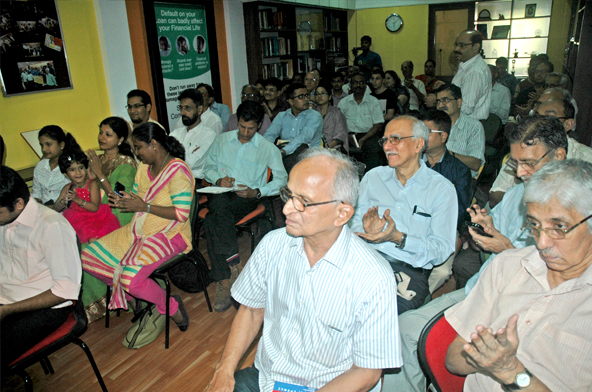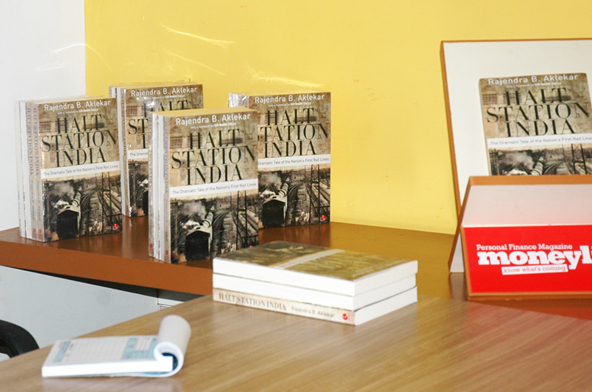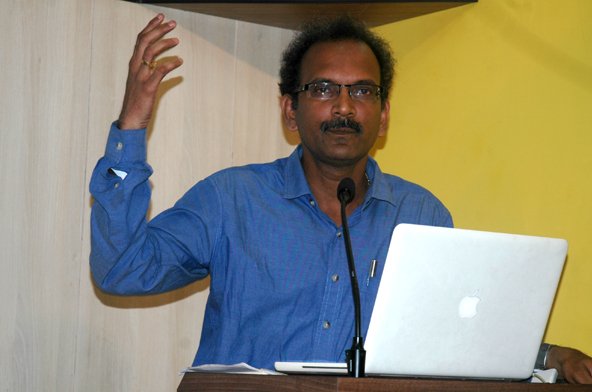
It has been a romantic journey of almost 162 years on the Indian Railways and during all these years, we have seen so many changes that sometimes are beyond our imagination. Today, we have metro, monorails making grand entry but Indian Railway will always remain the first, preferred and cheapest choice for the aam admi, says Rajendra B Aklekar. The author and journalist was speaking at Moneylife Foundation on “Romance of the Railways: The changing face of railways and our rich railway history”.
“Mumbai’s existing infrastructure is saturated. The demand of Mumbai Suburban Rail Network are different from the entire country. Even though, there are two divisions, Central Railway and Western Railway, for everything Mumbai Rail Network requires to approach, take permission from Delhi. This needs to be changed and Mumbai needs a separate, comprehensive local corporation for the region’s railway related needs,” Mr Aklekar said.
Several activists, transportation experts supported the idea and proposed to take it with the Railway Minister.
“More than 7.5 million or 75 lakh people travel by Mumbai’s local trains. Everyone is in a hurry and no one has time to notice and realize that the line that they travel is the oldest line of the country. It is the ground zero of Indian Railways, from where the lines and the story of the railways in India begun,” Mr Aklekar said while explaining why he wrote his book ‘Halt Station India’. The book chronicles dramatic expansion of India’s original rail network, the arrival of the first train and the subsequent emergence of a pioneering electric line-all in the port city of Bombay.
Mr Aklekar, a journalist with Mumbai Mirror, has trained in museology to document Bombay’s vanishing relics and helped the railways set up heritage galleries. He has worked on several prestigious projects to conserve the city’s ancient structures.
In first part of his talk, Mr Aklekar mesmerised the audience with numerable discoveries along the Rail lines over the years. For example, he said, the place at Mumbai Chhatrapati Shivaji Terminus (CST), erstwhile Victoria Terminus, was known as Phansi Talao some two hundred years ago. “Little did they (terrorist Ajmal Amir Kasab and Ismail Khan) knew that they were standing at a place exactly where more than 200 years ago, there was a water tank where criminals and murderers were publicly rallied, tortured and hanged to death. It had several odd machines – one that threw cow dung on criminals, a rotating cage that kept spinning to punish criminals. The place popularly called Phansi Talao ceased to exist in 1860 when the Bombay governor shut the open gallows and shifted it to Dongri,” Mr Aklekar said.
Talking about the development of Railways, which also saw some stations being discarded, the author said, “Historically, we have had means of transport that could have been of immense help now. The railway lines went all the way to Colaba and Ballard Pier, there was a Chembur to Andheri railway line that passed through Kurla, Kalina in place for east west connectivity and trams. All these modes of transport were discontinued as we opened up more and more land for development.”
Colaba station opened in 1873 was shut in 1930 during the Backbay reclamation project. The two-platform station at Ballard Pier used to ply two famous trains, Punjab Limited and the Frontier Mail to Karachi. However, it was discontinued in the 1940s as the navy took over the site, Mr Aklekar said.
It was the fate of other transportation systems like the Trams as well. Mr Aklekar said, “First proposals for the tram came in 1865 called Bombay Horse Railway Company. However, it did not materialise due to American Civil War. The first section on Tram opened in 1874 between Colaba and Pydhonie. Later in 1926, buses came to Bombay. A survey in 1952 found road transport vehicles increasing and tramway becoming hurdles. On 31 March 1964, the last tram run between Bori Bunder and Dadar after 90 year run.”
“Had we maintained and upgraded these transport modes, Mumbai would have been a different city today. Would they have been of real help or not will be debatable, but we would have had established modes of transport in a city, where we have 15 lakh vehicles today, more than 500 are registered everyday despite limited east west connectivity, Mr Aklekar concluded.


